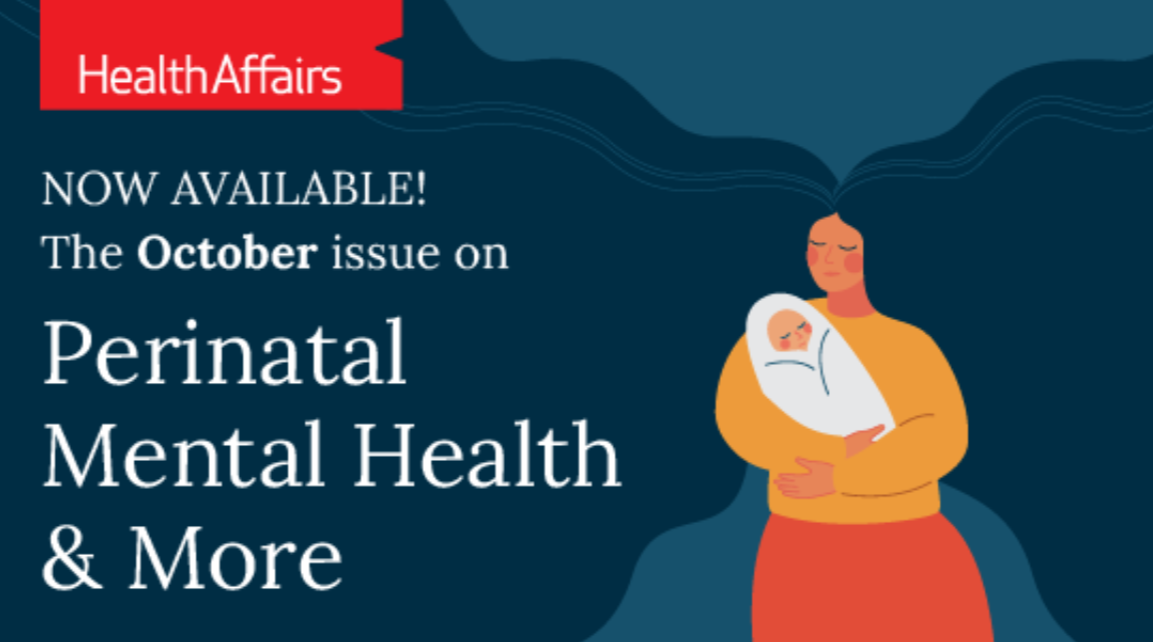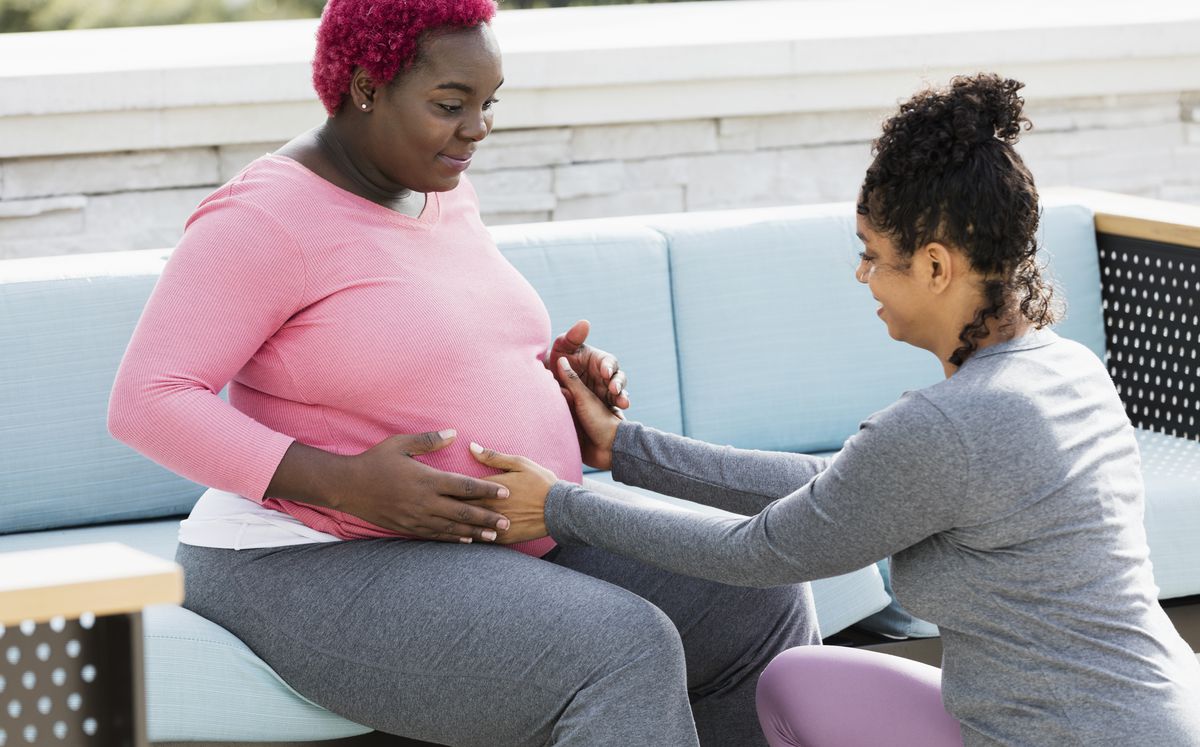👋Welcome to Starting Early. Every other week, we spotlight new reports, useful news, engaging interviews with people doing important work in the field, and interesting takes on issues that matter.
Reflecting on the significance of #WorldMentalHealthDay, we believe mental health is health. 💚 Most behavioral health challenges begin in childhood. In fact, 50% of all behavioral health problems appear by age 14. Many go untreated — and the cost to society is staggering, from health and productivity to frayed human connections.
In our upstream work with partners, we think deeply about trauma and adverse childhood experiences (ACEs) in our communities and building protective factors that buffer and heal from their impact. We’re helping reduce stigma around mental health by expanding healing-centered trainings in schools, police departments, and child-serving organizations. And we support pregnant women and new mothers with screenings, case management, and referrals that address a family’s physical, mental, and social needs. Initiatives such as expanding the doula workforce, universal newborn home visiting, CenteringPregnancy, and HealthySteps touch families during the critical window when families are most vulnerable. They promote relationship-based care, primary prevention, and community connections — powerful antidotes to the impact of trauma that improve health and development.
This week, we look at a first for Health Affairs: an entire issue of 15-plus articles diving deep into perinatal mental health. Bravo to our friends at the Perigee Fund and the ZOMA Foundation for supporting this important effort! 👏
We also sit down with Dr. Barbara Prempeh. She’s vice president of Black Clinical Psychologists in New Jersey and an expert in helping children heal in the juvenile justice system.
📣 The Burke Foundation is growing! We’re looking for a program associate for our maternal and child health programs. Please spread the word.
Read on and click the links to go deeper.
1 big thing: Untreated perinatal mental health conditions cost $14 billion a year 💰

The October issue of Health Affairs focuses on the health and economic costs of mental illness among pregnant and postpartum people.
Why it matters: Mental health conditions are diagnosed in one of five pregnant or postpartum people, yet perinatal mental health is poorly addressed in the US.
This groundbreaking issue magnifies the economic cost of mental health and reimagines ways to foster well-being in the perinatal period. Highlights include:
- Mental health conditions during delivery cost $102 million a year in increased annual delivery costs among people with perinatal mental health conditions compared to those without.
- People giving birth who have at least one mental health disorder have a rate of severe maternal morbidity more than 50% higher and incur hospitalization costs associated with delivery 9% higher than those with no mental health disorders.
- Key pathways are identified to advance equitable and antiracist maternal mental health care, including investing in the Black women mental health workforce and educating and training practitioners.
Between the lines: We think about physical health during pregnancy and birth, but mental health is often overlooked and not well supported in the healthcare system — especially for women of color.
In the news: US Rep. Lauren Underwood (D-IL) introduced the Black Maternal Health Momnibus Act of 2021, which creates important policies like 12-month postpartum Medicaid coverage. Existing pregnancy-related Medicaid coverage lasts 60 days, leaving many birthing people without coverage when the risk of maternal and infant mortality is highest.
The 12-bill legislative package addresses every driver of adverse maternal outcomes in the US, with a focus on maternal mental health. It includes funding for community-based organizations to improve maternal health outcomes and help grow and diversify the perinatal workforce.
2. Dispatches from the field: In conversation with Dr. Barbara Prempeh

Meet Dr. Barbara Prempeh. She’s vice president of the New Jersey Chapter of the Association of Black Psychologists and a standout member of the NJ ACEs Collaborative Community Advisory Board, where she shares her expertise in trauma-informed care. Dr. Prempeh sits down with us to discuss mental health, particularly in the context of students of color and providing support through the pandemic.
In Newark alone, 2,000 people died of COVID-19, an immeasurable loss deeply felt by children in the community:
“How will you deal with grief and loss, given the high number of students you’ll have in classrooms that lost a parent, a grandparent, an aunt, or a community member to this COVID pandemic? What about the classrooms where teachers aren’t there because they passed away from COVID-19? How are we addressing that? I really want to see schools emphasize their emotional support for students. I get it that some schools just don’t have the capacity, or don’t want to add anything else to the school day, but we have to become creative in how we’re supporting students.”
We discussed:
- Challenges facing students, particularly students of color, during the pandemic
- Reducing barriers that prevent people from seeking or getting mental health services
- Pathways to healing for children in the juvenile justice system
She also spoke to us about the mental health workforce: “For communities of color, there’s the acknowledgment that there aren’t enough therapists and psychologists of color because there’s a privilege in having a therapist that looks like you. We have to acknowledge that communities of color don’t have that privilege all the time. That’s something they have to consider: ‘Yes, I want to go to therapy, but how long do I have to wait to find to find a therapist of color who has an opening, who takes my insurance, and whose office I can get to easily?’”
Read the full interview here.
3. The invaluable support of doulas

Community-based doula care provides a powerful and personalized strategy to improve birth outcomes for mothers and babies. Doulas offer physical, educational, and social support to new mothers. Many associate doulas with care during labor, but they also accompany mothers to doctor appointments, facilitate communication, coach on breastfeeding, and help connect families to community resources. And doulas play a critical role in recognizing perinatal mood and anxiety disorders.
Why it matters: Untreated depression during pregnancy is associated with substantial risks for such adverse birth outcomes as low birthweight, preterm birth, and postpartum depression.
Screening for perinatal depression identifies women in need of mental health diagnoses, referral, and treatment.
- One study found universal perinatal depression screening increased the rate of mental health diagnoses and raised patients’ expectations of treatment for perinatal depression.
- Many screenings don’t happen until six weeks after birth, leaving many to struggle without a diagnosis, using a questionnaire that is not always culturally sensitive.
What’s happening now: Burke Foundation partner AMAR Community Doulas in Trenton screens 100% of mothers they serve in their program for postpartum depression. ❤️
Learn more about the important work doulas perform in this podcast.
One smile to go: Laughter is the best medicine! 😄

When Burke Foundation President James Burke’s young daughter was in the hospital, the last thing he wanted was to see clown doctors doing their rounds. Or so he thought.
“Five minutes after meeting them, these special healers had made it through this father’s defenses,” James said, “and Alice, who was recovering from anesthesia, and our whole family, were dancing, singing, juggling – and laughing! It was transformational for Alice and all of us. These Red Nose Docs are magical!”
Last month, James was honored to serve as the Champion of Humor at Healthy Humor’s 5th anniversary celebration. The founders and team, all trained clowns from Big Apple Circus, have practiced “healthcare clowning” for more than three decades. Their work with hospitalized children is groundbreaking and well documented, with more than 65 professional artists, known as Red Nose Docs, serving more than 600,000 kids and families every year at 15 partner hospitals in 10 states.
How it works: Red Nose Docs create moments of joy, wonder, laughter, and comfort for hospitalized children and others who are most in need. Healthcare clowning can help relieve and blunt the force of traumatic experiences. Humor offers a way for children to cope with the environment of a hospital. But pain and trauma are often prevalent in the lives of many people – not just children in hospitals – with lifelong health consequences.
Looking ahead: The celebration was a huge success, raising more than $100,000. These funds will subsidize the Red Nose Docs program at under-resourced institutions in New York City and around the country, such as Harlem Hospital, BronxCare Health System, and La Rabida Children’s Hospital in Chicago. Healthy Humor is looking to expand to promote healing in big and small ways beyond hospital walls.
